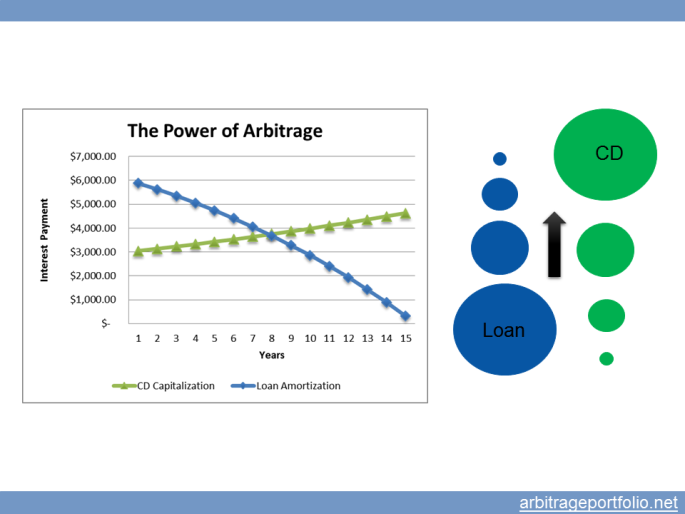Investing PLAYING THE GAME OF ARBITRAGE
Post on: 26 Октябрь, 2016 No Comment

By Kenneth B. Noble
Published: September 20, 1981
W ITH so many takeover bids on Wall Street these days, many investors see arbitrage as a quick way to make a profit. But market professionals who gamble on stock-price fluctuaations from takeover situations warn that arbitrage is fraught with risk. Profits — especially for unsophisticated investors — may be as elusive as ever.
There are several ways of playing the arbitrage game. In its most simple form, the investor purchases shares in a target company — typically after a friendly merger or acquisition offer is announced — and waits for its consummation. When there is uncertainty that the takeover will go through, the shares of the company to be acquired sell at a discount.
Last week, for example, the Northwest Bancorporation offered $56 a share for all of the shares outstanding of the Dial Corporation in a friendly merger. Before the announcement, Dial’s stock was trading at $24.375. When trading resumed, the stock jum p ed $19.875 to close at $44.25.
An investor might decide to get in even after a jump of close to 20 points in the stock, because with Northwest planning to pay $56, it was still possible to gain $11.75 a share by buying Dial stock and selling it to Northwest at the completion of the deal. But, as in most arbitrage situations, there is a risk. In this case, the merger is subject to approval by the Federal Reserve Board, and a similar acquisition bid for Dial by the Chase Manhattan Corporation in 1973 was rejected by the Fed. If the Fed rebuffs Northwest and the bid fails, the stock will likely fall to its predeal price, and the investor who bought at $44 or thereabouts would suffer a substantial loss. Usually, as the date of the corporate marriage approaches, the spread becomes narrower, reflecting the growing certainty that the deal will be done.
If two or more companies are bidding for the target’s shares — the multibillion-dollar bidding war for Conoco by Seagram, Mobil and Du Pont was a textbook case — the profits can be startling.
From the moment that Seagram posted its bid for control of Conoco, the battle for the oil company became an arbitrager’s delight. With three suitors after one company, it seemed clear that one of them would stay until the bitter end. In the opinion of many arbitragers, profits were almost assured. »It was one of the best situations that has ever come down the pike,» said Frank Richardson, director of the mergers and acquisitions department at Dean Witter Reynolds. »The only thing that could block it were the antitrust issues. It was something that could be carefully analyzed, and the betting was that the Justice Department wouldn’t slow it down.»
On the other hand, if a deal falls through, losses can be just as eye-opening. In August, arbitragers lost millions of dollars when the Delhi International Oil Corporation, a subject of acquisition rumors, announced that no buyers had materialized, and its stock plummeted 37 1/4 points in one day.
Most professional arbitragers are quick to point out that they are not speculators. They say they seldom, if ever, invest on the basis of rumors or tips. »All the pros will tell you that they never get into a deal before it is announced, and as far as I can tell, they’re pretty pure about that,» Mr. Richardson said. »If you start speculating, the whole risk-ratio that you work under changes.»
Stephen A. Royce, head of Bedford Partners, a firm specializing in takeovers, said, »Because hope springs eternal, many investors, particularly unsophisticated ones, tend to bid up the price of stocks too high given the probability that a deal will ever occur. After the Conoco deal, a lot of people, trying to play arbitrage, lost fortunes — virtually millions of dollars — trading in stocks like Cities Service and Delhi.»
The classic method of arbitrage — but one in decline now because opportunities are limited — involves buying in one market and selling in another where the stock’s price may be temporarily higher. Thus, a fast-stepping investor could conceivably purchase a stock for $25 a share on the New York Stock Exchange and sell it on the Pacific Exchange for $25.25. The profits are usually small — price differentials often amount to no more than a quarter or half point — but the risks are more or less nonexistent. Because of the narrow profit margins and the increasingly electronic market system, this method is largely unavailable to the small investor.

Through a variety of hedging techniques using options and short sales, professional arbitragers often buy shares in one of the corporations being merged and sell shares of the other. This form of arbitrage has traditionally been dominated by a small coterie of skilled money managers trading millions of dollars for the profitand-loss accounts of their own brokerage firms, trust funds and large institutional investors.
Market professionals, are almost unanimous in advising that the average investor stay out of complex situations -particularly hosti ledeals. »Ofte n in these arbitrage situations, the professional arbitragers h ave ways of hedging themselves — buying options, convertibles and other things,» said George Kellner of Kellner, DiLeo & Compa ny, an arbitrage partnership, »and those options almostnever enter i n the thinking of the small investor.»
What’s more, say professional arbitragers, is that the trading function is a rather arcane, fiendishly complex art, requiring highly sophisticated skills. To be successful in risk arbitrage, the arbitrager must have access to reliable information about hundreds of companies and be ready to make judgments rapidly about the prospects that an announced merger will in fact take place. Most professionals also rely heavily on paid consultants and law firms for guidance on Federal and state tax and securities laws.
»The large firms have the resources, for instance, to go ahead and hire a law firm in Iowa to review all the facts in a case and give us their opinion about what the state insurance commission might do in a merger situation, for example» said an arbitrager with a large brokerage house. »Theoretically, anyone can do that, but the small guy will probably not have that much at stake to jus tify that kind ofexpense. So he’s at some disadvantage.»
Said Carl Icahn, head of Icahn & Company, »It looks a little easy, but really, it’s like getting on the tennis court with John McEnroe. It’s not a place for amateurs. My advice for the average guy is to stay away.»
Illustrations: photo of Carl Icahn














